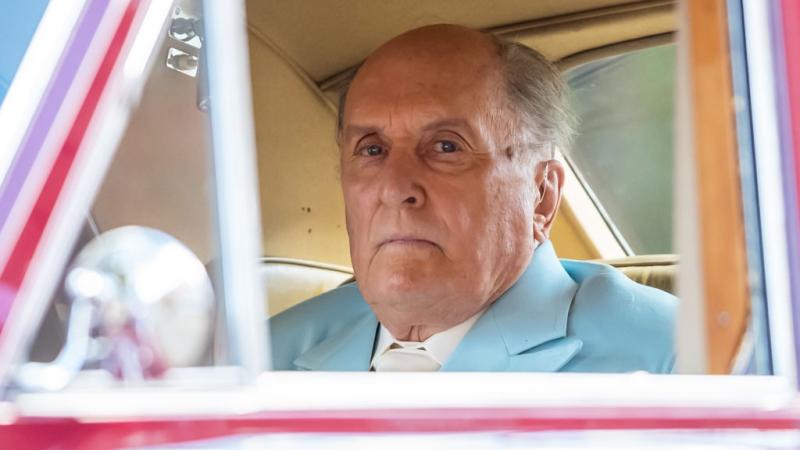Did the debate matter? Survey says 'not so much'
While Trump’s discussion of polling data referenced claims he won the debate, subsequent data on voter intention has presented a mixed bag for both he and Kamala Harris.
Despite Republican pressure for him to debate Vice President Kamala Harris again, former President Donald Trump has insisted he will not do so and preliminary data suggests he won’t need to worry about losing significant ground from such a move.
Pundits widely proclaimed Harris the winner of Tuesday evening’s debate on ABC News, with many opining that Trump came off angry and combative in response to Harris’s probing. But Trump insisted that he won the contest and touted a “monumental victory” over Harris in a recent rally in Arizona. In a post-debate Truth Social post, moreover, he said "[p]olls clearly show that I won the Debate against Comrade Kamala Harris, the Democrats’ Radical Left Candidate, on Tuesday night, and she immediately called for a Second Debate."
Heavyweight Republican figures, including stalwart Trump allies, have expressed hope that Trump would agree to debate Harris a second time.
“Any time we get a chance to put President Trump in front of voters to talk about his vision, we think that improves his prospect of success,” Rep. Matt Gaetz, R-Fla., said this week. Republican National Committee Chairman Michael Whatley and former GOP presidential candidate Vivek Ramaswamy have expressed similar sentiments.
The Harris campaign has also expressed interest in a second debate, with the vice president herself saying they “owe it to the voters,” Politico reported.
"KAMALA SHOULD FOCUS ON WHAT SHE SHOULD HAVE DONE DURING THE LAST ALMOST FOUR YEAR PERIOD. THERE WILL BE NO THIRD DEBATE!" Trump declared Thursday.
Surveys show a mixed result
While Trump’s discussion of polling data referenced claims he won the debate, subsequent data on voter intention has presented a mixed bag for him.
Going into the debate on Sept. 10, Harris led Trump by 1.1% in the RealClearPolitics national polling average with 48.4% to his 47.3%. Relatively little has changed in that metric thus far and Harris holds a 1.5% lead, with 48.5% to Trump’s 47.0%. Included in that metric, however, are two polls with survey periods entirely after the debate, both of which show Harris with five-point leads. One Morning Consult poll showed Harris leading 50% to 45% while a Reuters/Ipsos poll showed Harris with 47% to Trump’s 42%.
Whether additional polling will prove Harris’s lead in those surveys to be more than a flicker remains to be seen. But at least some data in front of Trump lends itself to his claims to have won the debate.
Trump campaign pollster Tony Fabrizio on Thursday released a memo contending that Trump had gained ground in “seven key target states.”
“We found that despite the best efforts of Kamala Harris and media to portray the debate as some kind of overwhelming win for her, voters did not see it this way as support for her remained flat,” he wrote. “The only change we saw was a 2-point bump for President Trump in both ballot configurations.”
In a multi-candidate ballot, Trump earned 48% support to Harris’s 46%, while the Green Party’s Jill Stein and independent candidate Cornel West received 1% each. In the campaign’s pre-debate data, Trump and Harris were tied at 46%, with Stein claiming 2%, and less than 1% breaking for West.
According to Fabrizio's polling, when asked to choose between Trump and Harris, Trump came out ahead 50% to 47%, a net shift of three points from the campaign’s pre-debate data, which had them tied at 48%.
Other data backs Trump
It wasn’t just data from Trump’s campaign that suggested that the contest moved the needle more towards Trump or had little impact. One InsiderAdvantage survey in the swing state of Michigan included an entirely post-debate survey period and showed Trump leading over Harris, 49% to 48%.
A CNN flash poll revealed that Trump actually gained ground over Harris on the economy. Heading into the debate, Trump led Harris on the issue 53% to 37%. He emerged from the debate with a 55% to 35% edge.
Harris improved on her favorability ratings, leaving with a 45% favorable to 44% unfavorable image where before those figures stood at 39% favorable to 50% unfavorable. For Trump, little changed. He entered the contest with 41% favorability and 52% unfavorable and left with 39% favorability and 51% unfavorable.
A Reuters post-debate panel of ten undecided voters, moreover, saw six move toward Trump, while three moved toward Harris, and only one remained unsure. Trump himself shared that headline, which read "Some undecided voters not convinced by Harris after debate with Trump".
The New York Times further ran a similar article, headlined "Pundits Said Harris Won the Debate. Undecided Voters Weren’t So Sure.” That article included accounts of undecided voters who watched the debate and weren’t moved by Harris’s performance.
Did it matter?
Nielsen ratings revealed that 67.14 million people tuned in to watch the Trump-Harris debate, far more than the 51.3 million who watched his face-off with President Joe Biden in June. The spectacle marked one of the most-watched presidential debates in recent cycles and it is difficult to imagine another opportunity for the candidates to contrast themselves with each other in front of a comparable audience.
But if a supposedly clear victory for Harris in front of an audience that large failed to move the needle to a significant degree, the Trump campaign may have a basis for not debating.
“He and his advisers will likely conclude that they can do a lot better with voters by eschewing direct confrontation with Harris,” wrote Doug Schoen, a former advisor to left-leaning candidates such as President Bill Clinton and Mike Bloomberg. “They will do that by sending him out on the campaign trail to do both interviews and rallies. That will be far more effective than taking the risks inherent in a night like the one we witnessed on Tuesday.”
Indeed, Trump has doubled down on holding in-person events, holding a press conference in Los Angeles on Friday.
“We've gotten great praise for the debate,” he said at that event. “Ninety-four percent of the Republicans said I did phenomenally in the debate. Some said that I could have been tougher.”
















